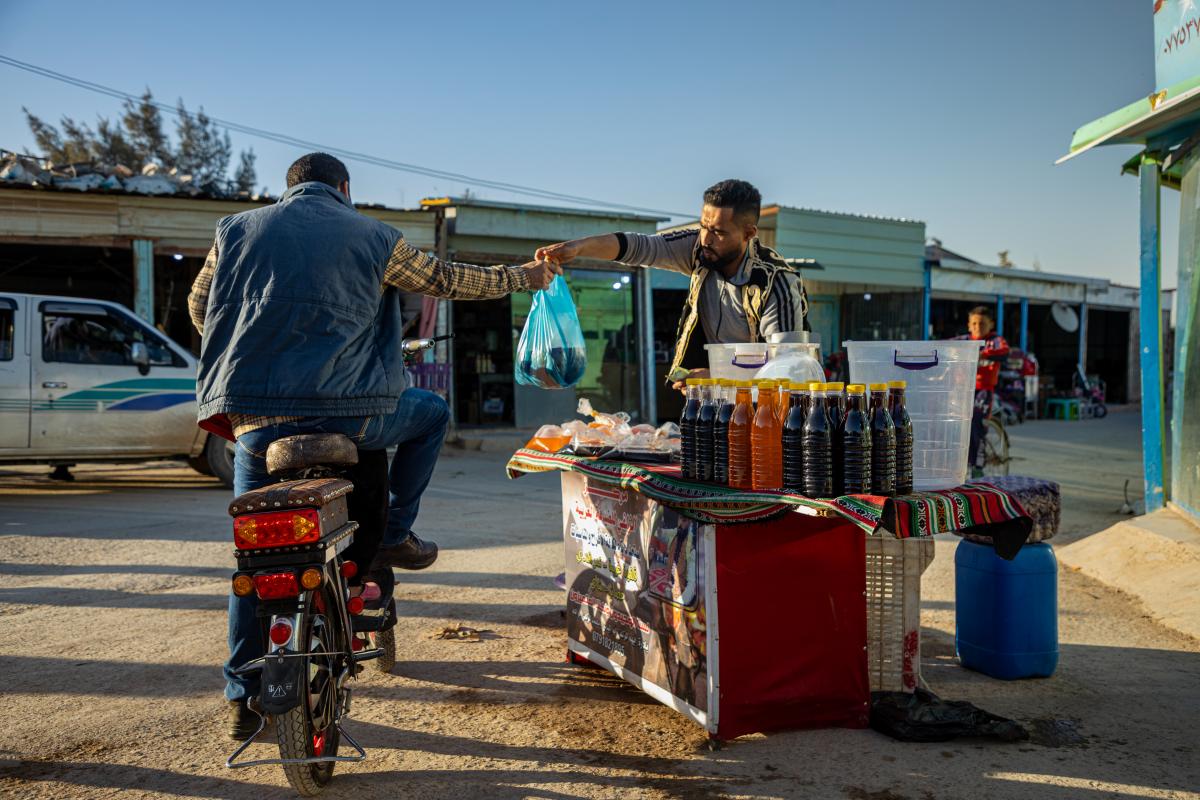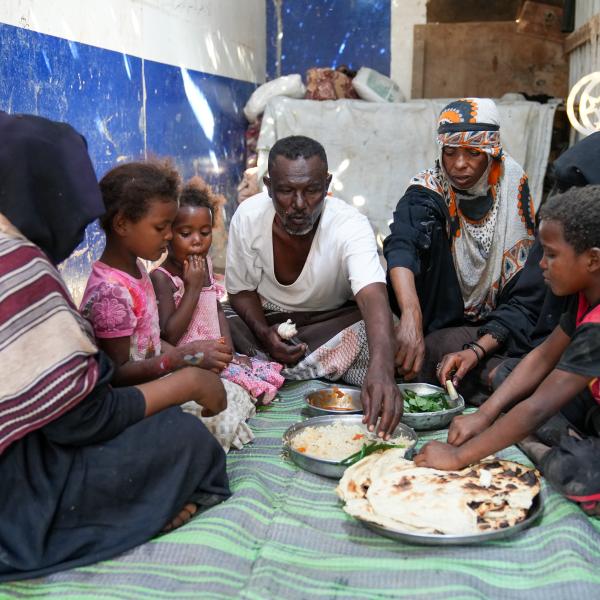As Eid al-Fitr approaches, millions of refugees around the world celebrate despite facing immense challenges. But how do those forced to flee uphold their cherished Ramadan traditions far from home? Discover how families find strength through faith and tradition - and how you can support them.
What is Ramadan and how do refugees celebrate?
Ramadan is the holiest month in the Islamic calendar, marked by fasting, prayer, and spiritual reflection. For Muslims worldwide, it is a time of renewal and connection, much like the way Christmas fosters togetherness and generosity in Switzerland.
Ramadan is not only a time for personal devotion but also for community. Each evening, after sunset, families and friends gather to share iftar, the meal that ends the daily fast. Acts of generosity take centre stage, from offering food to a neighbour to donating to those in need. For those forced to flee their homes, Ramadan remains a source of solace and strength. Even in displacement, communities come together - sharing whatever little they have, praying side by side, and supporting one another in the spirit of kindness.
« Our traditions are so beautiful. If I meet someone during Ramadan, of course I would invite them to iftar. »
says Mahmoud, a Syrian refugee who fled to Lebanon with his wife Saqra.

Lebanon’s deep economic crisis has made survival even harder for refugees. Over 90% of them live in extreme poverty - yet Mahmoud and Saqra continue to observe Ramadan with unwavering resilience. Each evening, they break their fast with simple meals, often shared with neighbours who are struggling just as much. Their faith remains strong, even as they face daily uncertainty.
« We eat whatever God provides for us. If we receive tomatoes and onions, we give thanks to God. The UNHCR aid we receive helps us maintain our dignity. »
While faith and tradition offer comfort, the realities of hunger and poverty remain severe for many displaced communities during Ramadan.
What is Zakat?
During Ramadan, Muslims are encouraged to be generous and increase their charitable efforts. Acts of charity can take various forms, such as providing iftar meals for those in need, donating clothing, or offering support within the community or further, to refugees and displaced people facing hardships.
One of the most significant expressions of generosity during Ramadan is Zakat, a form of obligatory giving for those who are financially able. More than just charity, Zakat is a fundamental pillar of Islam that helps bridge the gap between those who have and those who struggle - similar to how many people in Switzerland contribute to social causes through donations and humanitarian aid. For displaced Muslims around the world, observing Ramadan often means facing hunger and uncertainty. Yet, through acts of kindness - such as shared meals, community prayers, and charitable aid - they find moments of solace, even in challenging conditions.

« Sometimes I earn enough money to feed my children. Other times I end up crying because I have nothing to feed them. If we stop receiving the Zakat, we will not be able to feed ourselves during these hard times, »
says Balqees, who was forced to flee her home and now relies on humanitarian aid like 21 million others in Yemen.
How does UNHCR help refugees during the holy month of Ramadan?
After enduring years of conflict, families like Balqees’ fight to maintain their dignity—especially during Ramadan, when the challenges of displacement are felt even more deeply. Despite the volatile context, UNHCR continues to provide displaced families in Yemen and elsewhere with life-saving support.
UNHCR’s Refugee Zakat fund provides refugees and internally displaced people in countries with significant Muslim populations with the means not only to observe their fast, but also to break it with dignity. In 2023, over 1.1 million people in 20 countries from Lebanon to Bangladesh have received emergency relief items and cash assistance through the fund. Since its creation in 2017, it has helped around 6 million people forced to flee with essential support, providing them with the warmth of solidarity and the continued hope for a better future.
It is in difficult times like these that we must be reminded of the power of a community standing together. This Ramadan may our collective strength echo louder than the despair that seeks to silence hope,»
says Filippo Grandi, UN High Commissioner for Refugees. All around us, humanitarian crises are on the rise and for countless displaced families, this Ramadan will be the hardest one yet. In Switzerland and throughout the world, many people contribute to charitable efforts during Ramadan and beyond, supporting refugees through UNHCR’s actions to provide them with lifesaving aid.
Together, we can make a profound difference to the lives or refugee families.